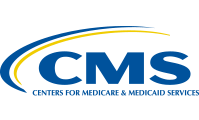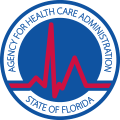As the opioid epidemic continues to weave a dangerous trail throughout the United States, overwhelming a countless amount of cities, including Tampa and its surrounding communities, another new type of substance is adding to the gravitas of the problem and claiming lives in its wake.
U-47700, also known as “pinky” or “pink,” is a synthetic opioid that is said to be eight times more potent than morphine. Despite the fact that this substance has been the cause of a number of recent deaths in the country, it remains legal in most states.
Reporter Max Blau from CNN explains that U-47700 was originally created to be a substitute for the painkiller morphine. It was never tested on humans, never received approval from the Food and Drug Administration (FDA), and, therefore, never became available on the market. Instead, it remained classified as a research chemical.
Unfortunately, manufacturers in the foreign drug trade became privy to the formula of the substance and began creating it and selling it on the internet. Currently, these purchases are considered legal and are shipped to the buyer in the form of powder, pills, or nasal spray.
The Rise of the Epidemic
Opioid substances, which include heroin, prescription painkillers, and a number of synthetic drugs, have a long-standing history with drug users. As the abuse of prescription painkillers became more prevalent, the number of people using heroin decreased. But as steps were taken to control the misuse of painkillers by limiting the number of prescriptions that physicians can write, the number of people who began using heroin increased. This cycle then took another turn as drug cartels began distributing synthetic derivatives of opioid substances in order to market a more potent high.
The consumption of U-47700 can elicit feelings of euphoria, which is what draws users’ interest. The substance can also make individuals feel numb and experience profound feelings of sedation. Professionals have noted that the effects of the substance can be extremely detrimental, not only placing one’s health at risk, but also causing them to lose a sense of reality, resulting in the onset of psychosis.
Even in small doses U-47700 is incredibly toxic, and has resulted in the deaths of dozens of people throughout the country. Even still, it has only been outlawed in four states, with Florida most recently joining the ban initiated in Ohio, Wyoming, and Georgia.
Not far from Tampa, in Pinellas County, five people died as a direct result of consuming U-47700. Florida Attorney General, Pam Bondi, placed an emergency order outlawing U-47700 after it reportedly killed at least eight people in the state. Under the order, individuals who are in possession of U-47700 can be punished as a third-degree felony, which can carry a jail sentence of as many as five years.
Added Concern
In addition to drawing the intrigue of new and current users of other types of opioids, the availability of U-47700 can also pose a threat to the sobriety of those in recovery. Whenever a person has struggled with an addiction to any type of substance, he or she is always at risk for experiencing a relapse. Addiction is a disease, and although individuals have the ability to fully recover from their compulsions to abuse substances, temptation is something that they will likely have to fight for the rest of their lives.
When a new drug is introduced, such as U-47700, individuals who are in recovery may be tempted by falsities that surround the drug itself. For example, because this particular substance is legal in all but four states, some individuals may see it as being a safe drug to use. So while they have already overcome their battle with another form of addiction, the possibility of possessing a substance that can induce a high, while still allowing them to remain safe, can be extremely tempting.
The problem, however, is that this drug is not safe. And not only are they giving up their sobriety by consuming it, they are also placing their lives at risk.
Fighting the Epidemic
In order to address the detriments that the exposure of so many opioid substances has elicited, local treatment centers such as ones in Wesley Chapel, Pasco County and Tampa, Florida must be one step ahead of the community in understanding the dangers associated with newly emerging drugs. By understanding the crisis at hand, addiction treatment professionals can offer programming options that are tailored to meet the needs that this crisis has elicited.
For those who have recently been exposed to U-47700 or other types of opioid substances, or for those who have been long-time users of these drugs, receiving care in order to overcome their addictions is imperative. Whether it be at the inpatient or outpatient level, engaging in treatment is essential. Additionally, by offering options for continuing care services, treatment centers can give individuals access to supports that they can utilize after they have exited treatment.











